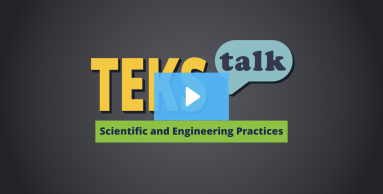
Knowledge and Skills Statement
The further explanation is designed to be a resource for educators that helps them better understand the topic their students are learning. Further explanations may be written at a more complex level than would be expected for students at the grade level.
Investigations:
Like scientists, engineers must identify relevant variables, decide how they will be measured, and collect data for analysis. Their investigations help them identify how effective, efficient, and durable their designs may be under various conditions.
Some investigations involve simple observations as scientists try to understand a process or behavior. This type of investigation is called a descriptive investigation.
A comparative investigation involves comparing a process or behavior in two different settings. A correlative investigation attempts to determine the extent to which two variables are related.
Another kind of investigation is called an experimental investigation. An experimental investigation involves a test with identified variables. Some variables stay the same throughout the experiment, the scientist manipulates one variable, and another variable responds to the manipulated variable. Scientists observe the relationship between the variables during the experiment. This kind of experiment can also be called a controlled experiment.
Models:
Both scientists and engineers use models. Physical models show how things look or work in the real world. Conceptual models represent relationships and describe how things work or fit together. Mathematical models use mathematical equations, theories, formulas, and proofs. Simulations allow for the control of variables and mimic real-world processes. Examples of models include sketches, diagrams, mathematical relationships, simulations, physical models, and prototypes, and they are used to make predictions about the behavior of a system.
Research
Leming, Maureen. The Hun School of Princeton Resources: What Is Problem-Based Learning (PBL).2020. Princeton, NJ: The Hun School of Princeton. www.hunschool.org/resources/problem-based-learning
Summary: Allowing students to identify real-world problems by asking critical questions helps them to take ownership of their learning. This article explains the concept of problem-based learning and shows how it differentiates from traditional learning methods.
